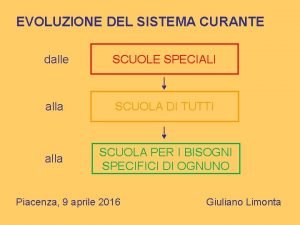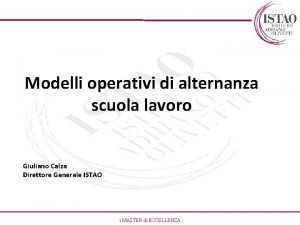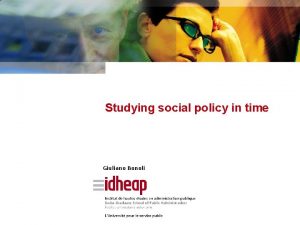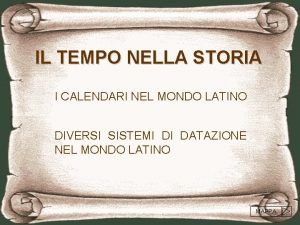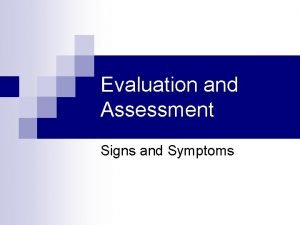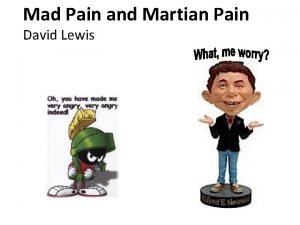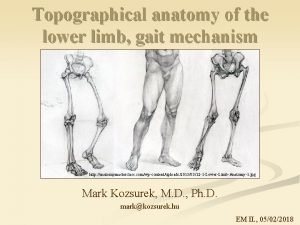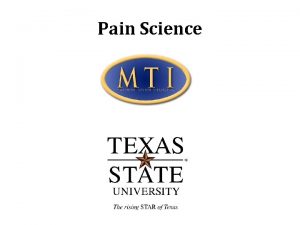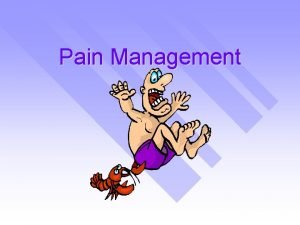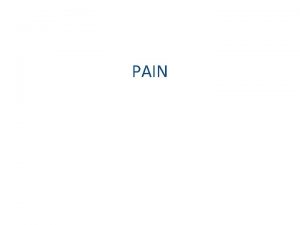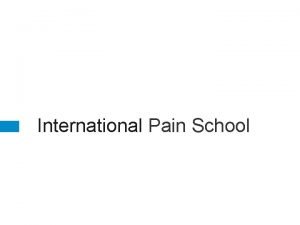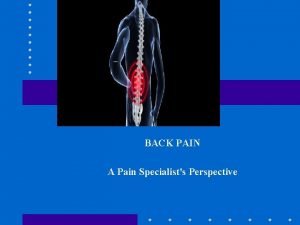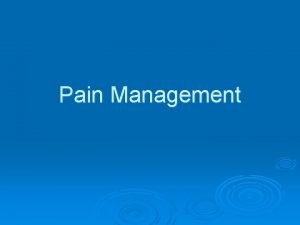P is Pain in GP Giuliano Piccoliori SIMG










- Slides: 10

P is Pain in GP Giuliano Piccoliori SIMG – Società Italiana di Medicina Generale Accademia Altoatesina di Medicina generale

What are we speaking about n n n Pain is one of the most common reasons for consultation in general practice. Estimates of prevalence of chronic pain vary a lot, ranging from 2 to 40% with a median value of 15%. This wide variation may reflect true differences between populations, but also the use of different definitions and classifications of chronic pain in epidemiological studies. Most of chronic pain patients are in their 60 s or 70 s, are women and consult their GP 5 times more often than the others. The most common locations of chronic pain in the community are limbs and joints and the back. Neck and head are other important origins of chronic pain. Diagnostic classification is often vague or impossible.

The role of the General Practitioner n n n Chronic pain causes reactive behaviors and psychological suffering. This generates anxiety and depression, which interact to cause or maintain the chronic pain Chronic pain can disrupt the life It is a devastating pathology which is called pain-disease. Because of being a "disease of the person" it is an issue that should be mainly allocated into the field of GPs. According to the "PAIN in EUROPE SURVEY”, 70% of chronic-pain-patients were treated by their GP and only 2% directly consulted a pain specialist.

Italian Pain re. SEarch/ IPSE – The CRF

Low Back Pain in General Practice in Alto Adige Results n 25 GPs participated Registered patients 43. 012 6% of all registered patients consulted their GP because of a LBP Women: 60% Average age: 55 n Around 25% of them with chronic LBP n n 8 24. 09. 2021 Giuliano Piccoliori

Critical points in the chronic pain care in general practice 1. GPs are not used to explore the various components of the pain; 2. The adjuvant analgesics are fewly and not correctly prescribed; 3. Strong and weak opioids are prescribed in an insufficient amount

Simple assessment tools Diagnostic > therapeutic path

Networks of pain therapy Italian Law 38/2010 • The networks of pain therapy, that were provided by an Italian law (38/2010), were only realized in some regions and provinces of the country. • They consist of specialist care centers as central hubs and outpatients´ pain surgeries as peripheral spokes, as well as of GPs. • It is possible to educate GPs to manage the chronicpain-patient, to provide efficient treatment and A MORE EFFICIENT COLLABORATION WITH THE PAIN SPECIALIST.

Conclusions n The goal should be: ¨ to educate and train GPs in evaluation and assessment of chronic care patients ¨ to enable them to provide a good treatment for individual patients and to recognize when a referral to a specialist is needed. n The big challenge of chronic pain can only be faced together, uniting competences, expertise and knowledge of GPs and pain specialists.

«…only for the gods life eternally flows without pain» Thank you for the attention
